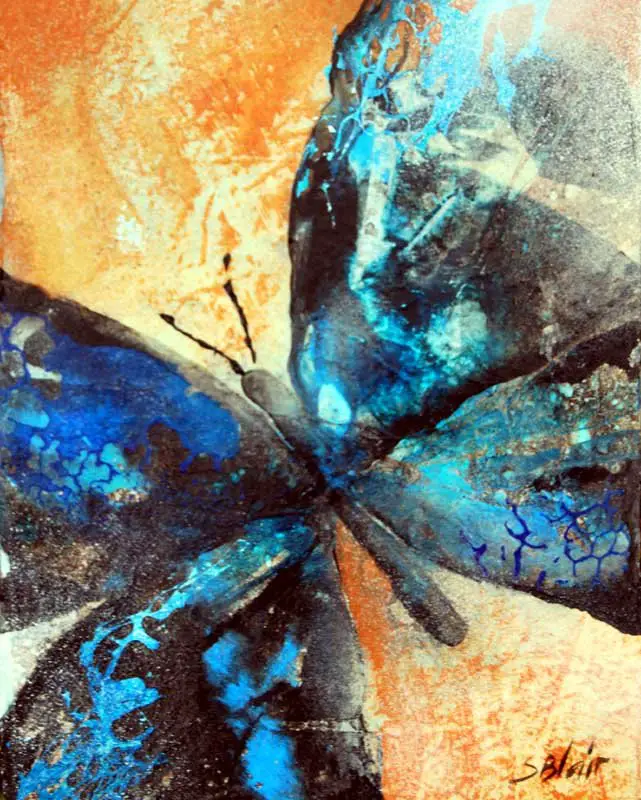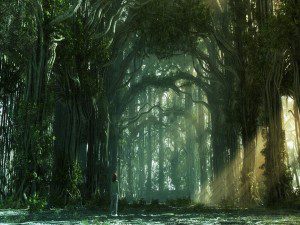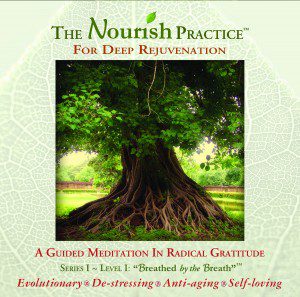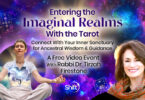By Jack Adam Weber L.Ac., Dipl. C.H.
Contributing Writer for Wake Up World
Most holidays in first world countries are about having fun, and most involve explosives. Maybe this is the extreme stimulation we need to feel excited. Our holidays largely lack spiritual context and meaning, save for expressing our love to one another and sharing good times. Religious holidays that literalize religious myths don’t fare much better in terms of helping us deal with reality.
We are missing the sacred in our celebrations, which would honor the things and experiences for which we are truly grateful, that truly fulfill us and give us life, as if we were truly grateful... which collectively we may really not be. Our Earth-honoring rituals have all but disappeared in the modern world and visits to the natural world for many are akin to going to Disneyland. How might we make a shift?
[pro_ad_display_adzone id=”110028″]
Gratitude
Sacred celebration leaves us feeling more whole while doing little to no damage to the natural world. We feel better after sacred celebration, even if “better” is simply to acknowledge what is true — true about ourselves and about the world today, the next year, and hopefully longer.
To this end, grief and despair, decline and decay, are also worthy of celebration, as central to the cycle of fertility in both soma and psyche. These emotions were more prevalent in pervious eras, before we lost the deeper meaning of holidays, which holy days originally marked the turning of the seasons and the qualities we needed to cultivate at certain times of the year in order to honor and live and in harmony with natural cycles . . . to increase fertility both inwardly and outwardly.
When we celebrate and genuinely feel gratitude for what is sublimely beautiful and enchanting, gross expression is less needed. In fact, such appreciation requires a good dose of quiet so as to be consolidated in us, sacredly and quietly abided by, not dispersed in gross outward expression. In fact, I notice a correlation between outward exclamation and inner poverty; in other words the less at home we feel in our bodies, the more we yell and scream and make noise. I am not saying we have to be monks, but we would do well to find more genuine awe and inner richness for our celebrations, which would cut down on the immense amounts of holiday pollution we make. Remembering the natural cycles of the year and their significance for our inner and outer lives would help.
Celebrations that cause damage not only to ourselves but to the world around us, that have little heart, and merely serve as more diversion and drama, are emblematic of our footprint on Earth. Ironically, it is on the holidays (at least American ones) that we collectively increase pollution on the planet. A return of the sacred to our days, especially to our celebrations, would be a small gesture of the gratitude for being here and for the gifts of the Earth.
Our short-term celebrations bear the same signature as our short-term pleasures, short-term consumption habits, short-term environmental policies, and short-mindedness. Just as we need new consumer models that ensure durability, we need celebrations that profoundly shift our focus, habits, and our effects on everything non-human.
Christmas and New Year’s
Christmas and Chanukah roughly correspond with the winter solstice, when the sun is the lowest on the horizon, and makes its way back to the heavens. Christmas and Chanukah both celebrate the return of this light. But this light is not just in the sky above our heads; it is in our very chest. So, during these December holidays we can take stock of the past year, reflect on our challenges, and give thanks for however we have made it through. We can be grateful for the resilience of our hearts and the skills we marshaled to get through. And we can use New Year’s to make resolutions to enact what we learned: how to stay out of trouble, how to make better use of our time, ways to better our wellness and that of what we love. In. honor of the Earth, we might commit to helping it out some too, to participate in the renewal of growth as marked by the increasing daylight and the corresponding outward and upward growth of plants.
The noise of holidays gets in the way of meaningful reflection. Rather than try to get away from it, sometimes I embrace the affliction and let my creativity find healing. Last year on New Year’s Eve, amid the noise, I imagined the body of Nature cringing in disgust, as if saying, “Ugh, there go those humans again hurting my ears and polluting my veins, as if every non-holiday were not enough!” This is a poem that I wrote on that New Year’s Eve after a walk through the orchard on my farm. It will appear in my new book Rebearth, alongside my other collections of poems.
Explosion
The most dazzling explosion
 I witnessed tonight
I witnessed tonight
Was the wings of a moth
On a papaya tree in the orchard
Whose spread was a tapestry
Of bronze, ochre, purple, indigo, crimson, and taupe.
It lay there easy amid the noise, its iridescent eyes
Glowing as no fireworks can.
I thought to take a picture
But declined, to celebrate such quiet ecstasy.
We need so little when we are already bursting inside,
Destroy so much trying to ignite what already smolders.
“Happy New Year” I wished the moth,
As it flew away
Leaving no smoke, no echo, no trash,
Just color, preserved in flight.
Appreciating What We Have
With each holiday, I grow more convinced that celebrating by way of reckless banter and superficial fun is a way not only to demonstrate our lack of appreciation, but to avoid appreciating what we have, ironically enough. Many feel awkward in social contexts trying to find meaning and genuinely express themselves in frivolous environments. This is why we have the sacred settings of circles, ritual, and long pauses between meaningful words uttered in such places. We often feel awkward at holiday parties, especially if we want a meaningful experience, so getting drunk and eating too much help assuage the discomfort, as another form of anaesthetizing ourselves from a reckoning of ordinary beauty and making sober commitments to change.
Many of us pass through holidays with excitement, anxiety, stress, and a secret desire to return to “ordinary life.” We party, entertain, and then can barely function the next day. What if we celebrated in a way that gave us something to make the rest of our days truly better? This would introduce a new pattern, a new signature to our ordinary days, which suffer mediocrity in the shadow of the pumped-up grandeur of holidays. So, this year, for Christmas and New Year’s consider doing something that makes the earth of you happy and grateful; spending some time in nature might inspire you.
Honoring Earth
Holidays are emblematic of how we treat the rest of creation. I am convinced that humanity needs to stop partying and start truly appreciating if it wants any chance to survive into the future, and most definitely in a way that is worth living. I am convinced that humans feel the need to have so much superficial fun because we don’t feel fulfilled, that we are not grateful for the gift of life. I think our celebrations are another form of consumerism, driving our planet and ourselves into the ground, the ground of in fertility. We fail to use holidays as opportunities to sanctify our lives in a context of comprehensive wellness.
We have driven Nature to the brink in an utterly disgusting display of projected self-hatred. This desperation has created the specter of imminent extinction of our species. There is nothing “fun” about this. Yet sacred celebration, as ceremony, can accommodate this grim reality as the ceremony of embracing darkness and life’s failing side. Like decline and decay, sadness and remorse are celebrations in their own right. A heartfelt embrace and sharing of these emotions, along with their attendant revelations and wisdom, is largely only possible in sacred contexts where we dedicate at least some inward space to reverie.
Just because humanity is in the doghouse does not mean that we can’t be also be happy, excited, impassioned, excited, and joyous. We just have to make sure that we don’t use these positive feeling states to puff ourselves up in denial. We can, I assure you, be fully conscious of our plight and still find great, if not greater, meaning, purpose, and passion in our lives and reasons to celebrate. Many don’t have a healthy relationship with pain, and we unrealistically imagine that if we were to fully embrace our hurts and griefs, personally and collectively, we could not also lead passionate, meaningful, connected lives. Indeed, the opposite is true. Embracing the uncomfy parts of ourselves engenders a depth, passion, and belonging that we could not experience without them, thereby making every day a holy day, which is what we need these days. These psycho-spiritual boons are integral to our joy and a meaningful life, even (and again, especially) in times of greatest despair. We can invoke a little healthy, dark side reflection during the holidays to occupy more heart-space in ourselves, to help us feel and take heart of our place in the world and our relationship with Nature.
A sober, grounded passion for life welcomes an acknowledgement of what we have done to the planet. We recognize there is no real celebration that injures what supports us. Such sacred celebration is permeated by great humility, remorse, introspection, and heartfelt resolve. When most of our holidays include extroverted displays of extravagance, noise, and the production of trash, what are we really celebrating? People toss around notions of celebration as if not to join the mindless party is a sin (sin’s original meaning is “to miss the mark”); I imagine they are uncomfortable with their own relationship to holiday and celebration. To me, it is a sin to blindly participate and not speak out. If we truly appreciate life, it seems there would be less need to announce it so loudly and desecrate what supports our very lives. We would instead act more softly.
Resolutions
New Year’s resolutions fulfill a sacred function of this holiday. I always make them and often spend good time meditating and reflecting on how I can improve myself over the next year during the days between December 25 and January 1. These days are my favorite time of year. It’s when everything slows down and people are caught up in communing and gathering and enjoying one another. There is less noise and the air feels clearer.
I keep track of my resolutions throughout the year. On one of my blog pages I sometimes ask if folks are staying on track with their resolutions, but I rarely get a response. I wonder why people don’t make New Year’s resolutions. If we cared enough, I imagine we could consider our resolutions after a good night’s sleep, or during sleep in our dreams, not tanked out on too much food, stimulation, and distraction. I cherish the good sleep and rejuvenation I get in the twilight days between Christmas And New Year’s!
In past years I used to sometimes celebrate the holidays paradoxically, as kind of sacred protest—I wouldn’t celebrate them, not literally anyway. I would abstain from celebrating as way of commemorating every other day, committing to make sure I celebrate their heartfelt message every day of the year. Nowadays I enjoy the communal feeling of the holidays, the break from everyday life, and getting together with friends and family to share love, laughs, meaningful conversation and healthy food. But this is about the extent of my “celebrating,” even on non-holidays!
So, I don’t expect you to have my kind of fun, but I do hope you will consider if the fun you have is truly fun for you, and if your brand of fun enlivens or injures the world around you. And if your fun desecrates others and the environment, then I encourage you to consider if this is rally okay with you and what sort of fun doesn’t do this.
Enduring Fun
I think we need to start having a lot more of a very different kind of fun on the planet and spend a lot less time being frivolous. This is why I have long enjoyed celebrating winder solstice, as the acknowledgment of darkness and a homage to the return of the sun—as a metaphor for embodying the death and rebirth process I consider central to our capacity for love, survival, and enduring fun.
Sacred fun is embodied, recycles and conserves, uplifts in enduring fashion, leaves us truly renewed, and has vision and respect for the future. At the very least, it does no harm. We need to rekindle the fun of watching the simple fireworks of nature and let that overflow our hearts and instill in us a relationship with the quiet, with the ordinary. For, it is the ordinary that is suffering so desperately all around us. While most of our major holidays have pagan, earth-centered origins, the sacred beauty of nature usually goes unnoticed by us, especially on these holidays.
We wish each other well and for a healthy new year; this also serves a sacred function. But perhaps we could spend some time on New Year’s Eve reflecting and sifting through what we do with our time and energy and resolve to make changes, which might include a commitment to keep checking in with ourselves and supporting others to stay on track with our heartfelt callings. After all, the elimination of suffering helps us have fun. Yet this sort of discipline to ensure ordinary fun as everyday well-being we loathe and reject, as we reject most discipline that does not serve our hunger for immediate gratification.
Consider that the more we celebrate in ways that trash our insides and surrounds, the more we lose, or have already lost. The more we need to celebrate externally and superficially, the fewer emotional-spiritual resources we might actually have and continue to stave off. Our dearth of internal resources mirrors the resources we plunder externally. Our resistance to create a rich inner life is our resistance to stop plundering the Earth’s treasures. Our excessive partying and meaningless social distractions serve to further impoverish us and the planet.
So, in the days before this New Year, I invite you to spend some quiet time in celebration, including some sacred time in nature. Maybe invite a special friend to join you. Consider sitting with some New Year’s resolutions, writing them down, and following through with them. With the environment in collapse, it is my prayer that more and more of us commit to celebrating in ways that remedy even a fraction of the sacred wound we have collectively inflicted on the planet. It is my wish that every day be a holy day for awareness and love-sharing. And if this is what we dedicate ourselves to every other day of the year, may these holidays nourish and replenish you in the ways you see most fit to celebrate what matters to you.
Happy holidays to one and all.
For ideas to help you through the holidays, please see my recent article, Holiday Emotions – 11 Tips for Dealing with Family Triggers
The Nourish Practice
Jack Adam Weber’s “The Nourish Practice” is an easy, guided meditation-Qi Gong practice in radical gratitude and self-love. It is an Earth-based, body-centered practice — at once physiological and mythological — that is deeply relaxing and replenishing, especially for modern-day burn-out syndrome, and requires little physical effort.
The Nourish Practice “resets your nervous system” and fosters a rich inner life. You can purchase The Nourish Practice as a CD or Digital Download here.
Previous articles by Jack Adam Weber:
- Relationships: The Costs of Staying When We Should Leave
- Emotional Work
- Choosing a Partner – How to Avoid Relationship Suicide
- Re-Thinking Love: Why Our Hearts Must Also Be Minded
- Spirituality – Reality Check
- 11 Crucial Tips for Better Digestive Health
- Shadow Work: Becoming a Sustainable Light Worker (Part 1)
- Oneness in Action: The GMO Eradication Movement
- After the Hurricane: Lessons from the Heart of Nature
- Relationships: How They Can Make Us Happier
- Heartbreak – Loving Ourselves Through Difficult Times
About the author:
 Jack Adam Weber, L.Ac. is a Chinese medicine physician, author, celebrated poet, organic farmer, and activist for body-centered spirituality. His books, artwork, and provocative poems can be found at his website PoeticHealing.com. He is also the creator of The Nourish Practice, an Earth-based rejuvenation meditation. Weber is available by phone for medical consultations and life-coaching.
Jack Adam Weber, L.Ac. is a Chinese medicine physician, author, celebrated poet, organic farmer, and activist for body-centered spirituality. His books, artwork, and provocative poems can be found at his website PoeticHealing.com. He is also the creator of The Nourish Practice, an Earth-based rejuvenation meditation. Weber is available by phone for medical consultations and life-coaching.
You can connect with Jack Adam Weber on Facebook or by emailing [email protected].
[pro_ad_display_adzone id=”110027″]









